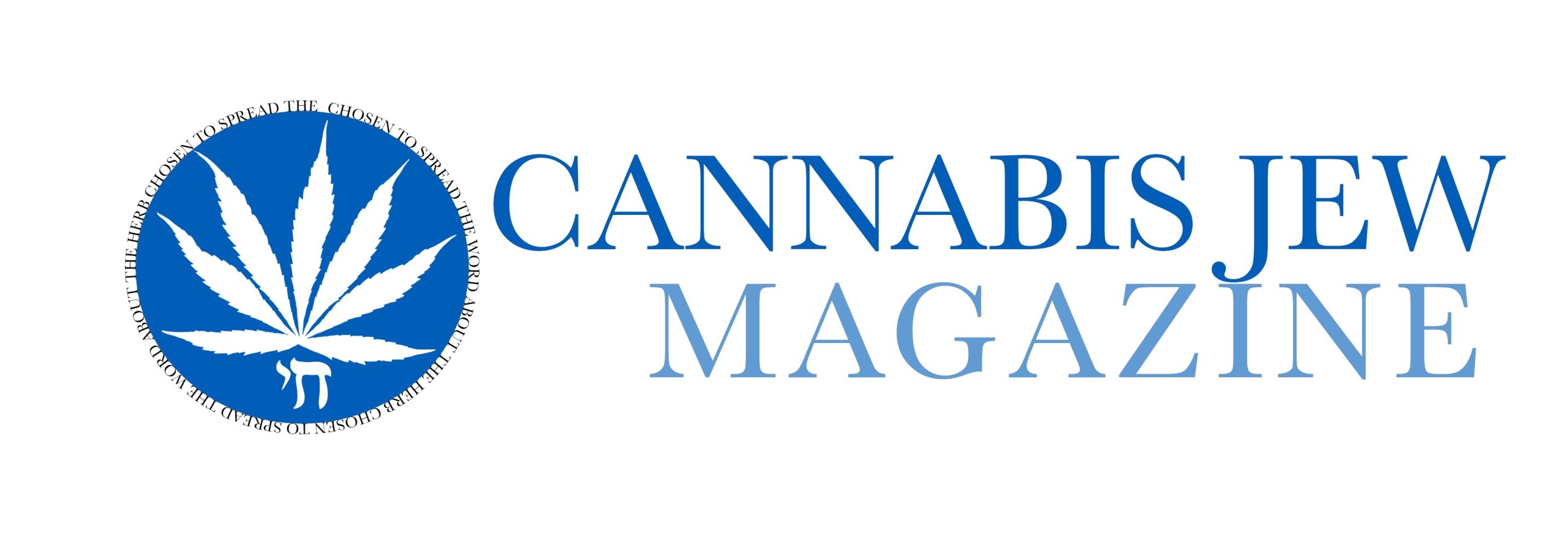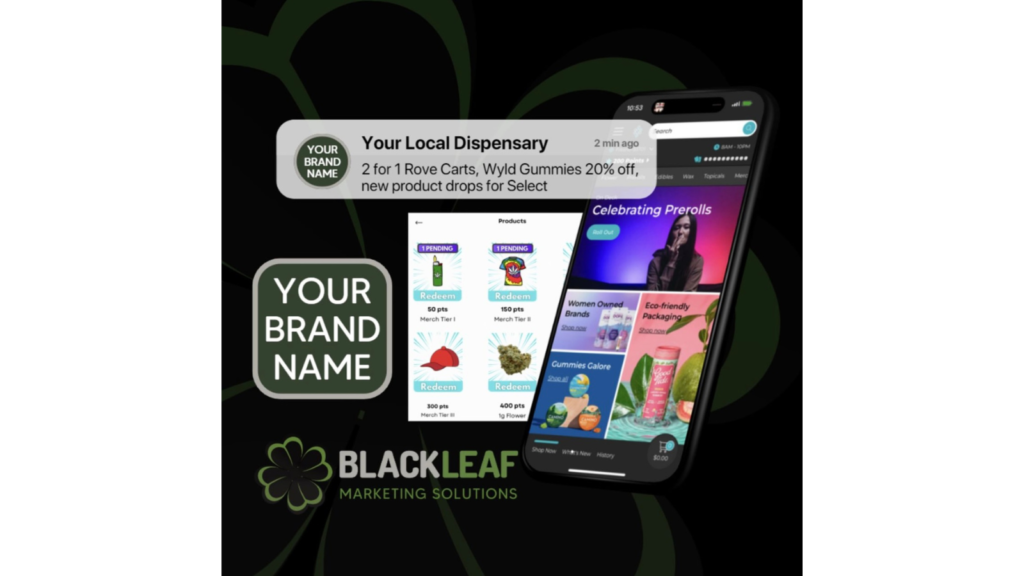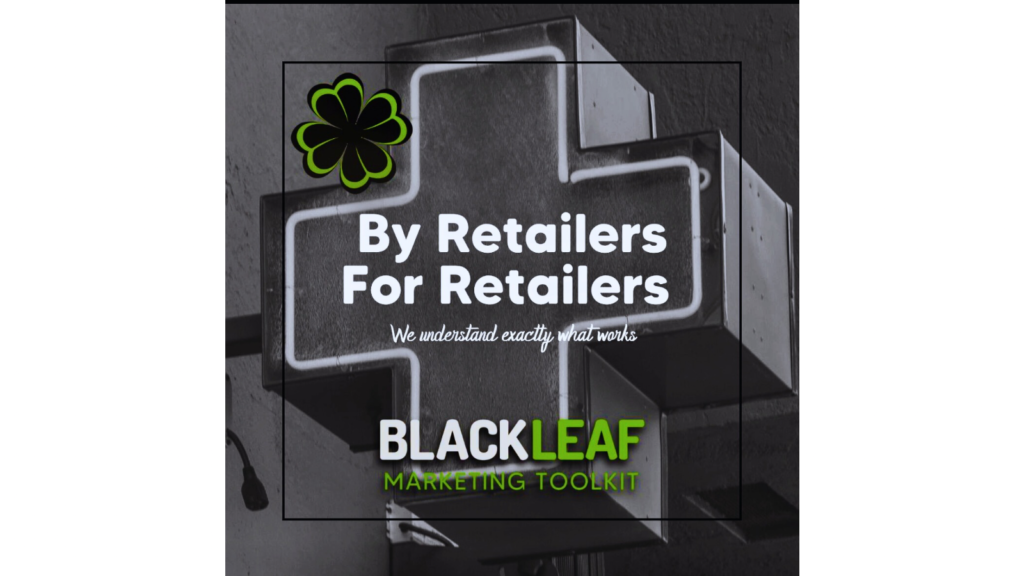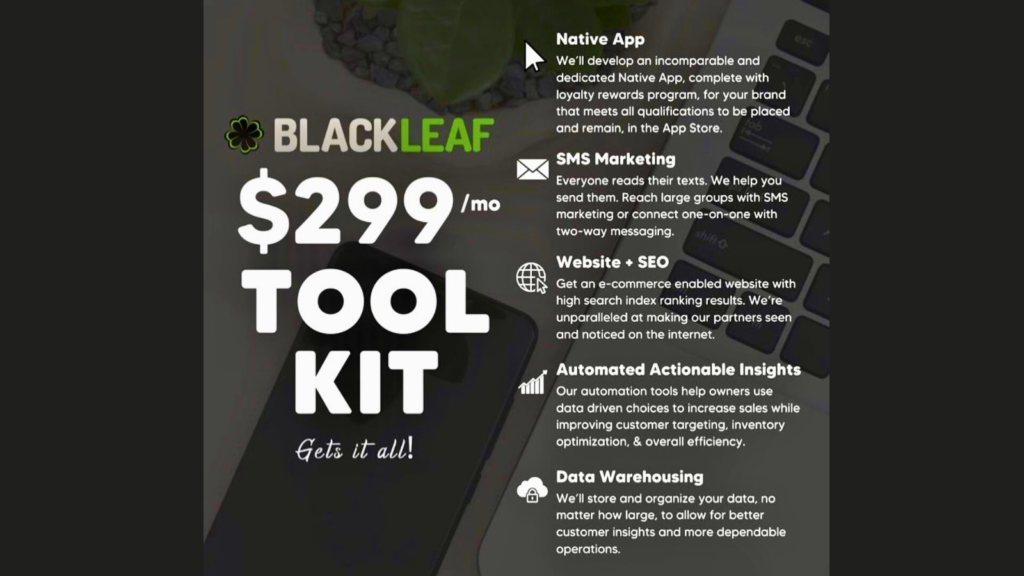In the current climate, it’s rare to find a CEO in the cannabis industry who is genuinely concerned—as a non-Jew—about antisemitism and the well-being of Jewish communities, eager to show solidarity. This is how CJM first learned about James Gude, CEO at Blackleaf who connected online with Editor-In-Chief Dr. Lissa Skitolsky to offer his support, ask questions and learn more about the Jewish relation to cannabis.
When she asked him about his relation to Jewish people, or how he could feel our terror at this moment, Gude replied:
Well it’s like Primo Levi said: “It happened once, It can happen again.” I think about that all the time. It could happen again. Of course it can.
This month we honour Gude as our Mensch of the Month for his empathy, solidarity, and devotion to supporting minority groups in the cannabis space.
After we bonded over Primo Levi, I asked Gude (“JG”) questions about his company Blackleaf, a cannabis SMS marketing service that creates custom-made apps for dispensaries to engage with their customers or, for cannabis professionals, a texting service to engage with clients in the US. Since Blackleaf can boast a 95% deliverability rate, it’s the first marketing tool built for the cannabis industry that shows the true potential of SMS in the retail arena.
LS: Even though Blackleaf is smaller than its competitors, it’s much more open, without any of the usual restrictions on content. How did you answer this market need in the industry?
JG: I see myself as a dispensary operator, but I do have a technology background. I built the texting platform for the dispensary that I was working for a few years ago. I was heavily involved in marketing and I was the director of tech, and I was hired to build out the technology for the company. Everything they saw going through technology, from analytics to customer engagement.
So, I was able to build this texting platform, an app to attract and retain customers. That company exploded in a number of ways right before the pandemic hit, so I took our platform and started opening it up to other dispensaries. It took off well enough for me to create a team and that became Blackleaf.
JG: We’re not well known. But if you know us and use us, and you compare us to our competitors, we just kind of leave them in the dust. They’re so limited in this space for cannabis text messaging, they more or less make you shield your own brand. But we don’t have these limitations, we send direct text message content. This is this way we’ve always been. We’ve never run into any challenges.
JG: We’re using the texting platform to build out other tools and features. And in the last year or so we’ve been starting to market those other services. But my plan is to acquire a dispensary and create an operating model that allows dispensaries to sell more product, and faster, like a convenience store.
LS: That sounds promising, tell me more.
JG: You don’t really have many dispensaries that are convenient like a 7-Eleven. You know with a 7-Eleven, you can go in there and buy a pack of cigarettes and be in and out of there in a minute. In a dispensary in California, if you want to go in there and buy an ounce of weed it’s gonna take you, you know, in some dispensaries, 10-15 minutes. So we’re going to rebuild or rework the model closer to a convenience store approach.
LS: That’s hilarious because it’s so Jewy, like your ideal customer is Larry David: “Don’t talk to me, don’t bother me, just give me my herb so I can leave.”
JG: One-hundred percent, yeah, absolutely.
LS: Someone who’s not looking for communion and community, even kinda cranky because they just want their medicine, they don’t want to schmooze.
JG: Honestly, once you said Larry David, I’m like, yeah, he is our ideal customer. Like, we don’t want you to come in and smell different jars of weed. You don’t go into a 7-Eleven and ask to smell a pack of cigarettes.
LS: I’m starting to see how Blackleaf—the super-convenient all-in-one mass texting and marketing service—is a part of your more expansive vision for the cannabis industry.
JG: One-hundred percent. Yeah, we’re trying to disrupt dispensaries. Texting is an aspect of selling. It’s a crucial aspect, and it doesn’t require much to see great results. Start with that. Then you have to work out the right partnerships with the brands, you know. In order to have that great relationship with your brands, you have to have a model of consistency. You can’t sell out of their product. You have to keep it on the shelves, it has to be fresh. All of this takes work.
We don’t have the ideal dispensary model yet. I would say that there’s no real mainstream retailer that’s looking at a dispensary saying, “Hey, let’s copy that.” So you know, for example, dispensaries have way too many choices. They have like a thousand different SKUS or products on their shelves that they expect their customers to mine through.
LS: I really look forward to a dispensary where I’m not expected to engage in small talk. Like, that’s pretty liberating. Also, just to confirm, Blackleaf doesn’t just create apps for dispensaries, right? It’s also a platform to openly text about cannabis with clients or whatever in the US?
JG: Yes, you can get access to our dashboard where you can upload your contact list. The benefit is that your messages about cannabis will get through. You know that your recipients will be able to get the content that you want them to get. We can sync with a number of tools, and they can message people one-on-one or they can send out mass texts to their entire contact list.
LS: I don’t usually hear non-Jews quoting one of our greatest sages, in a very Jewy way, to imagine the experience of being-Jewish. So, like, how did you find your way to Levi? How did you develop this concern about us, about our survival?
JG: As a kid growing up, I had Jewish friends. And I remember that I always noticed that when my Jewish friends would leave the room, the White kids would immediately start saying the word “Jew” a lot. They just couldn’t help themselves.
Vote for the Next CJM Mensch of the Month!
In order to stay connected with the Canna-Jewish community, sign up to receive The Canna-Jewish News delivered right to your inbox. To learn more about the role of cannabis in the Jewish tradition, check out our new online course The Jewish Relation to Cannabis, sold with the Yeshiva Subscription to Cannabis Jew Magazine.











